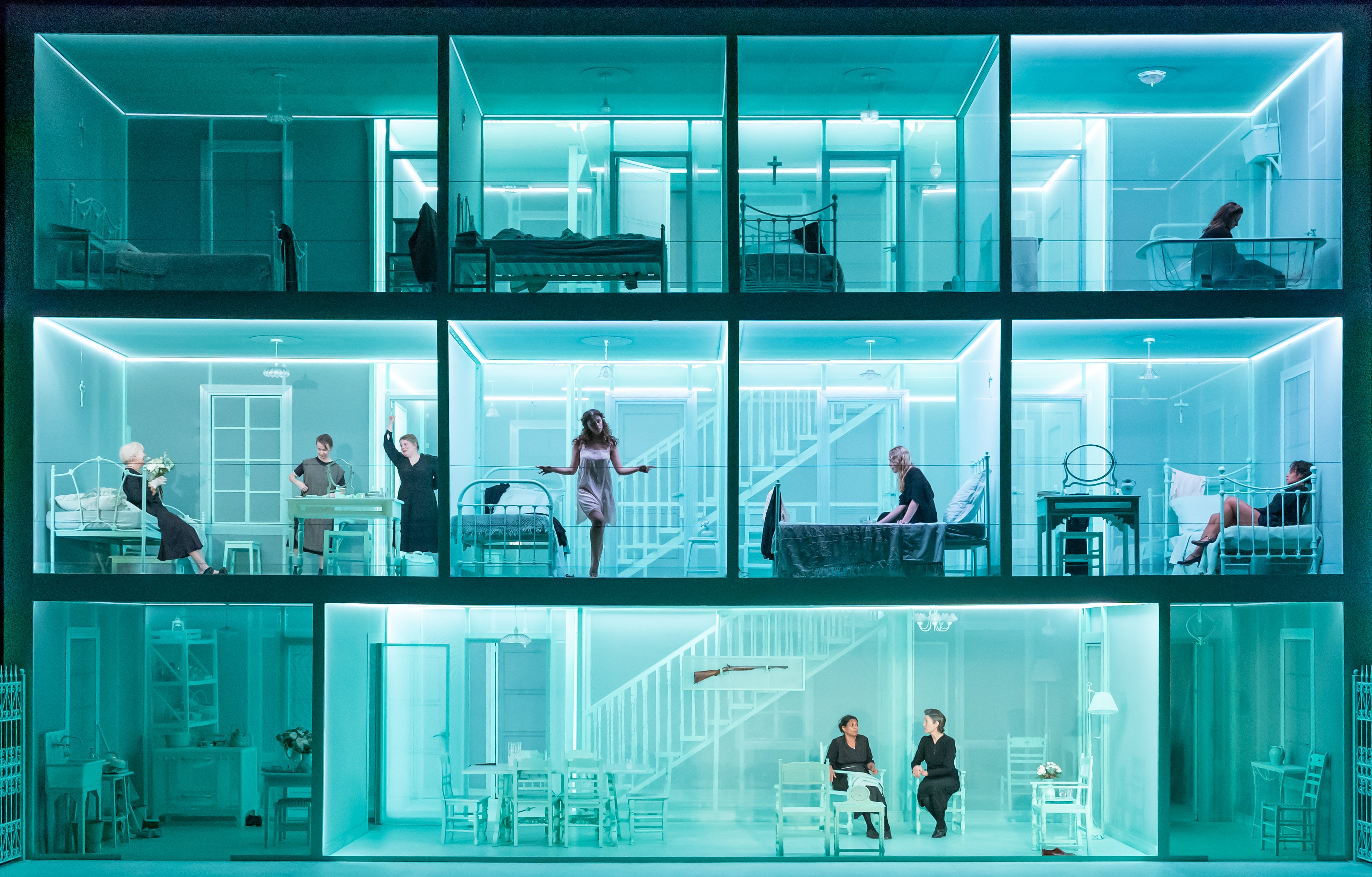The House of Bernarda Alba review: Harriet Walter is chillingly composed but Lorca revival doesn’t quite simmer
Lorca’s final play, in which sisters find themselves stifled in 1930s rural Spain, heaves with repressed sexuality – but star director Rebecca Frecknall’s approach is surprising clinical

Repressed sexuality dampens every page of Federico Garcia Lorca’s 1936 play, as five sisters rage, sob and stew in their house in rural Spain. This should be home turf for director Rebecca Frecknall, who made her name with her sensuous, award-winning 2019 take on Tennessee Williams’ story of forbidden longing, Summer and Smoke. But instead, she’s taken a surprisingly clinical approach to this earthy tragedy.
Harriet Walter plays the family’s titular matriarch with the iron-willed, chilling composure she brought to her firmly unmaternal starring role in Succession: she doesn’t need to raise her voice to cut through her adult daughters’ more theatrical agonies. Here, her house feels like something between a prison and an operating theatre, with Merle Hensel’s bold set design turning the stage into a three-storey doll’s house in sickly shades of surgical-scrub green. Bernarda holds court downstairs – upstairs, her elderly mother Maria Josefa (Eileen Nicholas) is locked in her bedroom, lost in childish fantasies of running away to get married by the sea, while her daughters seek refuge from her tyranny by hiding beneath their sheets.
Playwright Alice Birch’s adaptation follows the precedent of her hit experimental plays [Blank] and Anatomy of a Suicide by using overlapping dialogue, layering Lorca’s scenes over each other as they unfold in neighbouring rooms. It brings a new naturalism to the play’s opening set piece, capturing the stifling, muted cacophony of this overcrowded house as Bernarda presides over her husband’s funeral – and condemns her poor daughters to eight years of mourning. But it also feels frustrating and distancing, making it hard to follow these crucial establishing scenes, and not allowing the daughters to fully emerge as distinct individuals.
This production’s other big innovation is to make the fox prowling this henhouse visible: the sisters are all obsessed with handsome, 25-year-old Pepe Romano (James McHugh), who’s promised to sickly eldest daughter Angustias (Rosalind Eleazar), but sniffs around her younger, more passionate siblings. Normally, this character remains unseen. But here, McHugh treads the air in slow motion or haunts the iron railings that separate him from his prey. These movement sequences help to supply a little of this production’s lost passion, but with no named choreographer on board here, they often miss the mark.
It’s only in this play’s much shorter second act that things finally start to simmer. Lines are given space to hang in the air, or land with a thunk: Eliot Salt excels as awkward sister Amelia, teasing out ripples of audience laughter from this often-humourless staging. Violence, strangeness and pools of red light break into this once-orderly house – although its outlines are too cramped and rigid to let chaos fully reign.

Lorca’s play is an impressive exercise in empathy for 1930s rural women and their trapped, constrained lives, one that treads emotional territory that few other men of his time dared to explore. But it has limits. To a 21st-century audience, its protests against the traditional female frustrations of enforced celibacy and sewing can feel tired and predictable. This ultra-modern staging heightens that sense, by confining its women in boxes and never letting them run free. There are powerful moments, but so much of this story’s passion seeps away, lost on stony ground.
National Theatre, until 6 January



Join our commenting forum
Join thought-provoking conversations, follow other Independent readers and see their replies
Comments